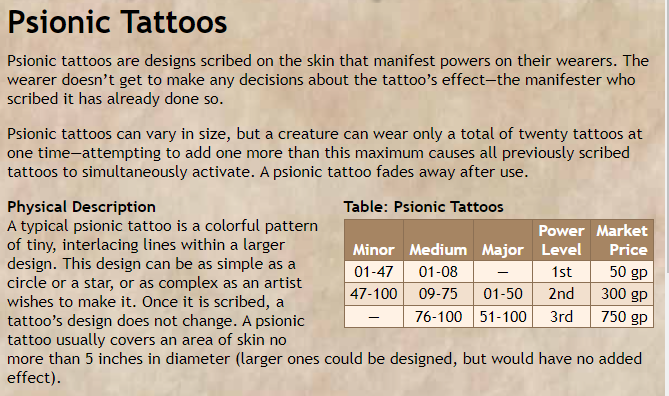Why hasn’t arcane magic been stamped out? We know that the populace hates arcanist, but are they consuming magic items anyway? I think they might be. I think it’s possible that arcane magic is difficult to wipe off the face of Athas because the people of Athas still purchase arcane products even as they hate the creators of those products. That sounds a lot like the situation with narcotics. Here is one such in demand arcane item.
Elixir of Apparent Youth
This clear, sparkling potion shimmers in the light, its iridescent colors fascinating to behold. When imbibed, the drinker appears to become younger, their wrinkles smoothing out and hair returning to its original color. Each dose reduces the apparent age of the imbiber by 10 years, to a minimum apparent age of adulthood for their race (for instance, 18 years old for humans), though their true age remains the same.
If a dose causes the imbiber to fall into a younger aging effects category (for example, from venerable to old), the penalties from their previous category are reduced to those of the current category, while the bonuses from the previous age category are retained. For instance, if a venerable-aged character were to appear old after drinking the elixir, their strength, dexterity, and constitution penalties would lessen to -2 each, but they would retain the +1 bonus to their intelligence, wisdom, and charisma.
This elixir does not truly reverse aging, and the imbiber’s lifespan remains the same. They will still die of old age at the proper time according to their actual age. If multiple doses are consumed, the effects stack, potentially reducing a character’s apparent age by decades.
Multiple elixirs stack. The real age of the imbiber must still be tracked to determine any aging bonuses.
Moderate transmutation; CL 10th; Craft Wondrous Item, alter self; Price 5,000 gp per dose; Weight -
Creation: Cost 2,500 gp, 200 XP, 3 days.
Lore:
On the harsh, sun-scorched world of Athas, the Elixir of Apparent Youth stands as a compelling testament to the paradoxical allure and dread of arcane magic. This potent elixir, born of arcane mastery, illuminates the reasons why, despite the fear and scorn heaped upon it, arcane magic persists in the shadows of Athasian society.
The Elixir originates from the clandestine arts of arcane spellcasters, both defilers and preservers alike, who serve a clientele of influential individuals desperate to stave off the inexorable march of time. These arcanists, including certain members of the Veiled Alliance, risk societal condemnation and the wrath of the sorcerer-kings, undertaking their forbidden art in secrecy to transform the fleeting vitality of youth into a tangible form.
Vendors of these Elixirs, often intermediaries for these arcane practitioners, peddle stories of miraculous rejuvenation, deftly hiding the reality that these potions merely reduce the visible signs of aging and alleviate some physical burdens of growing old. The stark contrast between the promise of youthful vitality and the harsh truth encapsulates the conundrum of arcane magic on Athas - a potential source of marvel, shrouded in fear and misunderstanding.
Despite the widespread vilification of arcane arts, the potent allure of these Elixirs drives an underground demand for magic, a clandestine market driven by the primal human desire for youth, vitality, and a reprieve from mortality. As such, these Elixirs continue to circulate in the underbelly of Athas, marking the uneasy relationship between the people and the arcane.
For those aware of the elixir’s true nature, it serves as a poignant reminder of the lengths individuals are willing to go to grasp the illusion of youth and vitality in a world where survival itself is a daily struggle. The Elixir of Apparent Youth, then, is a symbol of the forbidden allure of arcane magic, and the desperate hope it ignites in a world ruled by desolation and dread.
One of many such items. To an illicit arcanist, the potential for profits is enough that they are willing to take the risk of capture and death.
